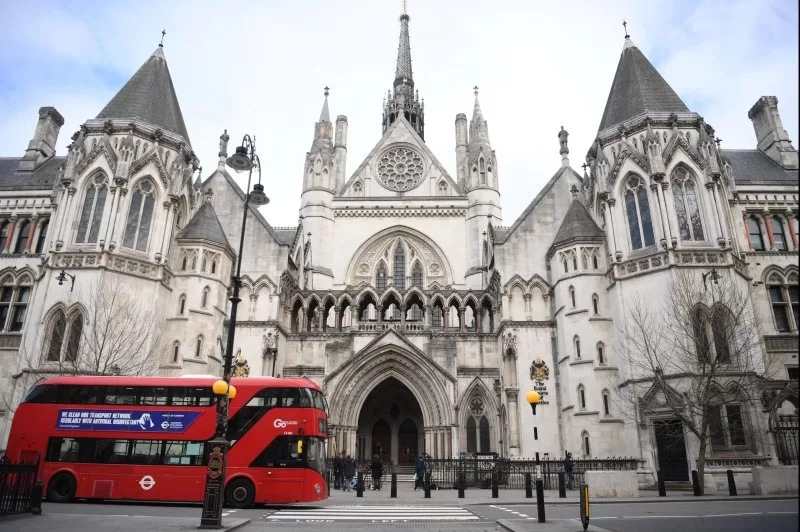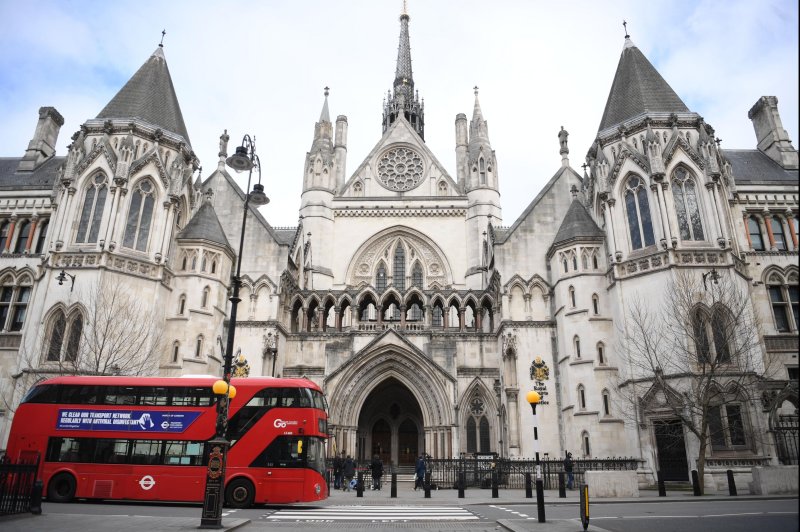Britain implemented emergency measures on Monday to reduce pressure on prisons overflowing from people being sentenced for taking part in, or inciting, riots across England and Northern Ireland at the beginning of the month. File Photo by Neil Hall/EPA-EFE
Aug. 19 (UPI) — Britain implemented emergency measures on Monday to reduce pressure on prisons overflowing from people being sentenced for taking part in, or inciting, riots across England and Northern Ireland at the beginning of the month.
Under the so-called Operation Early Dawn, defendants in northern England who have been arrested by police but who have yet to appear in court will be detained in police station cells until a prison place becomes free — but critically means delays as they cannot get their day in court unless space is available.
Defendants will only be summoned to a magistrates’ court when a space in prison is ready for them.
This means court cases could be delayed, with people kept in police cells or released on bail while they await trial.
The scheme, which was also activated in May by the outgoing Conservative government of Rishi Sunak, will operate in parts of the midlands and the east as well.
The measures would help “manage the pressure felt in some parts of the country,” said Prisons Minister Lord James Timpson.
However, Prison Governors’ Association Vice President Mark Icke said because the prison system had been “lurching from crisis to crisis for some time” he was not convinced the measures would do much.
Of the more than 1,000 suspects the National Police Chiefs’ Council says have been arrested for alleged involvement in violent unrest that broke out a day after three young girls were killed in a July 29 stabbing spree in Southport, at least 100 have already been sent to prison and another 300 have been remanded in custody.
The number of arrests are likely to increase significantly with authorities promising to pursue those involved for “as long as it takes.” Along with the policy of refusing bail to many of those awaiting trial or sentencing, credited with deterring further outbreaks of unrest, the extra burden on the system is not expected to ease anytime soon.
Two weeks ago Justice Minister Heidi Alexander, who oversees the courts and legal services, announced 567 additional prison places due to come on stream at the end of August had been “brought forward.”
The government had already put plans in place to temporarily reduce the proportion of a sentence most prisoners will serve announcing last month a cut from 50% to 40%, effective Sept. 10, prompted by prisons being at 99% capacity pretty much continuously since January.
That scheme is expected to see about 5,500 prisoners released in September and October, earlier than they would have been. Sex and domestic abuse offenders and those serving sentences for terrorism and some violent crimes cannot benefit from the plan.
The Midland Circuit which represents almost 1,000 barristers practicing out of more than 100 chambers spread over a wide swath of the middle of England said the use of police cells was a temporary fix that did not address the underlying over-crowding issue.
“We recognize that the government is taking much-needed action, but this is just a sticking plaster for a long-term problem,” said circuit leader Michelle Heeley KC.
“Prison cells are no places for criminals to be held, even in the short term, and the wider impact on the system as other cases are potentially pushed back will only add to greater pressure on an overloaded system.”
Magistrates and prison guard representatives both expressed concerns about potential delays in the administration of justice in a timely fashion.
Prison Officers’ Association National Chair Mark Fairhurtst told the BBC that the policy would lead to “justice delayed” for less serious offenders with the most serious cases being given priority.
Magistrates’ Association Chief Executive Tom Franklin warned avoidable delays had negative impacts for all concerned and meant what capacity the legal system did have could not be deployed effectively.
“Every case that is delayed has real-life consequences for victims, witnesses and defendants — and leads to magistrates and court staff sitting around waiting, rather than administering justice.
“That is a waste of resources, at a time when there are already large backlogs.”

